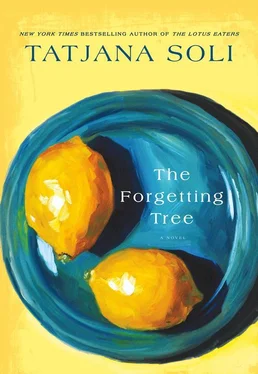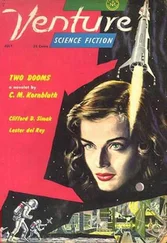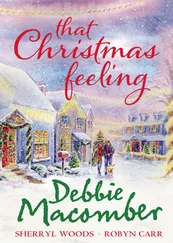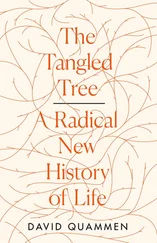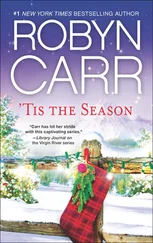* * *
She sat on Claire’s bed and watched her sleep. She was the first person Marie had loved since her mother. She would be sad when this time was over. Tears formed in her eyes.
Claire was lethargic, her breaths sweeping shallow like a bird’s, and she whimpered in fear that the cancer had come back. Why else feel so strange?
But Marie could only dose Claire’s mind; her body fought on with a vegetable vigor. She did not recognize these were the growing pains of health. But Marie saw the change. Undeniable as the turning of the winter solstice — even one day later, the darkness was less, and beyond the physical darkness, one felt in one’s bones that light was gaining in the world, conquering. Looking at Claire, one clearly saw that her life was returning — her color was pink instead of sheet white, her gauntness caused by hunger, not lurking death. Her skin had a fuzz of peach, the chick fluff on her scalp enough to make them both laugh. Marie had nursed her baby back to life, and she was proud as a mother and terrified as a mother — a matter of time before she was no longer needed. What came after? Why didn’t she deserve a home?
* * *
Claire got too weak, hardly wanting to leave her bed to relieve herself, and they were scheduled to visit the doctor in a few days, so Marie lessened the dose in the elixirs, and Claire walked around the house like a plucked bird, humming. Marie felt drunk with power like a tiny god. This smallest reprieve, and she had never seen Claire so happy. Joy is a thing that can be delivered in small slivers.
* * *
“Having the house empty helps me think,” Claire said. “Maybe I should redecorate. Start all over. Or travel? Maybe go see Lucy in Santa Fe? What do you think?”
“You should rest,” Marie said.
“How about some of your chicken and rice. I could eat a horse. I could eat a whale.” She giggled at her health, unsure if what she felt inside was real.
The night Jean-Alexi arrived, Marie put triple the dose in Claire’s elixir. She vomited, and her blood pressure dropped extremely low. Marie had to measure it twice to make sure she’d read it right. She was scared, frightened she had gone too far.
Claire cried Marie’s name in the night, and she went to her.
“Climb in bed and keep me warm.” Tears ran down her face, but they were healthy, glistening tears.
“Here I am, doudou .”
“I dreamed I was dying.”
“We’re all going to die someday, che .”
“You know what I mean,” Claire said, her eyes accusing, and Marie thought her secret was found out.
“Recurrence,” Claire hissed, accusing, as if the word held all the pain of the world inside it.
“Don’t talk like that.” Marie wiped Claire’s tears with her fingertip, put it inside her mouth. “It’s just a bad dream. Let me tell you what I see. I see you healthy in the future.”
“I get so scared.” Claire whimpering like a child, and Marie could not help the revulsion that lay sour in her throat. She lifted Claire off her arm and chest, and when she grabbed at Marie’s shirt, she thumped her cheek with her middle finger, a hard pluck off the thumb that shocked Claire into silence.
“That’s enough. I need to sleep, too.”
“Please,” Claire moaned. “Don’t leave.”
“Selfish, selfish, Agatha. Only thinking about yourself while the world is burning.”
Marie walked to the door, looked back at the dumb pleading of Claire’s face, like an animal kicked for no reason. Almost enough to turn around and give in and coddle her, because Marie did love her. But this was the way of the world; Claire better learn it. It sickened Marie to see such innocence in such old eyes. Why should Marie take pity when no pity had been taken on her?
She slapped off the light and shut the door. As she went downstairs to warm herself a cup of milk with rum, she heard the muffled sounds of Claire’s sobs. Later, Marie went back to her room. Claire was deep in sleep, her forehead furrowed and sweaty as an infant’s. Marie slid into the bed, and Claire rolled against her and sighed.
* * *
Marie poured cornmeal on the living-room floor to form the vévé for Papa Legba, opening communication with the spirit world. Was the vodou real? Yes and no. Marie knew as little about it as the man in the moon, only what she had stolen from spying on Maman, yet it had become more real to her than time spent in church. Why? Claire and she pretended for each other that it was real, that both felt its power, and that made it so. Wasn’t that what was meant by faith?
It is complicated to be a survivor. Sometimes you have to pretend in magic. You have to find a way to bury the dead.
Maybe the vodou had worked on her as well. After Jean-Alexi came, she realized too late she had changed.
Minna came to Claire’s room, folding away fresh laundry in drawers for the first time in months. “You met Jean-Alexi, nuh ?”
“You decided to do laundry?” Claire nodded. “He’s the father?”
Minna looked down at the bulge of her stomach as if in surprise. “Oh, no. No.”
“Why is he here then?”
“Our new foreman. He was a very good farmer before on Dominica. He won’t cheat us. He can be trusted.”
Claire thought about this changeable thing, trust. How she had squandered it so freely on a stranger who was more a figment of her imagination than a real self. But as she looked into Minna’s face, she knew that the woundedness was real; Claire simply did not know the source or the outcome of the hurt she was hiding. This girl was made up of motivations Claire had no way of guessing. Paranoia? All she could feel was a longing to go back to the way they had been before the man’s arrival because she sensed he would change everything.
She did not mention that the barn, supposedly packed full with the furniture from the house, including Raisi’s armoire, had been half-empty.
That night Minna set the table for three. But only the two women sat down in the usual candlelit semidarkness. After waiting for a long time, Minna, skittish, finally gave the signal that they could eat. She had been waiting for an appearance by the man that did not materialize. Clearly she wasn’t in charge. Dinner was the usual hodgepodge of food — smoked sausage and the wheel of cheese, refried beans and rice, oranges.
“You must have spilled some of your drink. There was a stain on the back of the couch.”
“I don’t know,” Claire said, digging into the bowl of beans. She, too, had learned the art of not answering.
“Jean-Alexi doesn’t scare you,” Minna said, a statement rather than question.
“Should he?”
“He needed a job. A place. Only for a little while. I needed to repay him a debt.”
Claire stared at her plate. “But you’re supposed to be looking out for me, too. Are you?”
“His wife and daughter are gone away. Macheted by bandits. Their faces taken off.”
“Oh.” This explanation stripped off her anger. Claire wondered if this explained the wildness she saw in his eyes.
“He is a lost man.”
When Jean-Alexi finally appeared from the barn, he and Minna exchanged angry words rapid-fire in a patois French Claire couldn’t understand, but she smiled up into his face, ignoring his dirty hands as he touched the food, the reek of his unwashed body. Away from him, Minna paradoxically appeared timid, subservient; in front of him, she became defiant, combative.
The women made small talk while Jean-Alexi wolfed down his food, ignoring them.
“Enough woman talk.” He shoved his chair back with such force it banged against the wall behind him. The room shrank as he rose to his full height. He seemed like a caged animal indoors, not-of-his-place. “Go make us coffee.”
Читать дальше
